How to File 1099: 5 Easy Steps
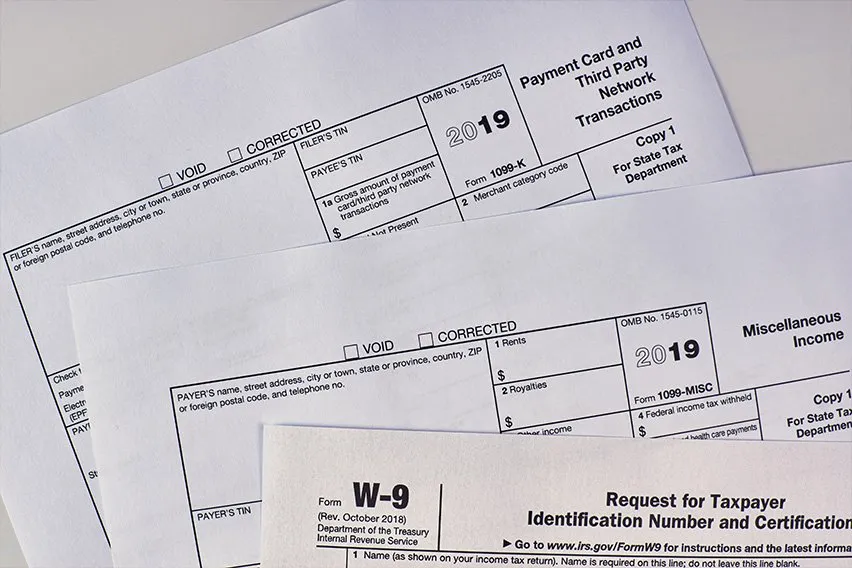
Independent contractors are an essential resource for many small businesses, so it’s important to understand how to process their employment payments when it comes to tax season. Freelancers, independent contractors, and many small businesses are covered under the 1099-MISC and 1099-NEC forms, which are used to report income on their tax returns as self-employed individuals.
If you’re planning to hire an independent contractor (or are already working with a few), you’ll have to know how to prepare and file the right income tax forms. In this guide, you’ll learn everything small business owners need to know about accessing and completing the 1099-MISC form, the filing deadline, and how to file it online.
Key Takeaways
- A 1099 form is used to report non-salary taxable income to the IRS.
- Form 1099s need to be filed by the business that hires independent contractors.
- You can purchase 1099-NEC and MISC forms from the IRS, office supply stores, or accounting firms.
- 1099-NEC and MISC forms can be filed by mail or electronically.
- If you have more than 10 forms (e.g., 1099-MISC, 1099-NEC, W-2s, etc.) you must submit them electronically.
- Electronic filing is often the most secure, efficient, and affordable method.
Table of Contents
- What Is a 1099 Form?
- Who Should File 1099?
- When Should You File Your 1099?
- How To File 1099 Electronically: Preparing and Filing Steps
- Benefits of Filing 1099 Electronically
- FAQs On How to File 1099
What Is a 1099 Form?
The 1099 form is a document that the Internal Revenue Service (IRS) calls an “information return.” There are a variety of 1099 forms, but there’s one thing that they all have in common: They are all used to report the different kinds of non-salary income that you earn in a tax year.
The two most common 1099 forms are 1099-MISC and 1099-NEC. Form 1099-NEC was re-introduced back in 2020 and is used for the majority of contract arrangements to report nonemployee compensation (NEC). A 1099-MEC must be created for and sent to each independent contractor, freelancer, or self-employed individual who was paid more than the $600 minimum reporting threshold.
In this article, we’ll be talking about Form 1099-MISC specifically, which lists all of the income that a person gets from non-employee or non-salary compensations such as commissions, bonuses, contractual payments, royalties, and other compensation over the calendar year. 1099s are also filed by business owners who make rent payments, with the exception of companies that rent via a property manager

Who Should File 1099?
Small business owners must file 1099-MISC forms to report all miscellaneous income not reported on their 1099-NEC forms. You must file these forms for each person for whom you pay $10 or more in royalties or broker payments instead of tax-exempt interest or dividends. You must also file this form for each person to whom you pay at least $600 during the year for:
- Rents
- Prizes and awards
- Crop insurance proceeds
- Medical and healthcare payments
- Cash payments for fish/other aquatic life that you purchase from a professional fisher
- Cash paid from a notional principal contract to an individual, partnership, or estate (in most cases)
- Payments to an attorney
- Fishing boat proceeds
- Most other income payments
Generally, you are required to file Form 1099 information returns for every vendor, service, provider, freelancer, independent contractor, self-employed person, or non-incorporated business to whom you’ve paid more than $600 during the tax year.
Landlords are also usually required to file 1099-MISC forms with the IRS to report money they pay to property managers, attorneys, independent contractors, repair professionals, and other professionals who work on the landlord’s properties but are not employees, assuming you pay them more than $600.
If you withheld federal income tax from one or more people under backup withholding rules, you must complete and file a Form 1099-MISC for each one, regardless of the actual payment amounts.
There are some exceptions. Certain types of payments are exempt from being included on your 1099-MISC forms, including, but not limited to:
- Generally, payments to a corporation (e.g., LLC treated as a C or S corporation)
- Payments for telegrams, telephones, freight, storage, merchandise, etc.
- Rent payments to real estate agents or property managers (note that the agent or property manager must use Form 1099-MISC to report their payments of these funds to the property owner)
- Wages paid to employees (reported on Form W-2 instead)
- Military differential wage payments made to employees while they are on active U.S. Armed Forces duty
- Business travel allowances paid to employees
- Current life insurance protection costs
- Payments made to tax-exempt organizations and tax-exempt trusts, the United States, a state, the District of Columbia, a U.S. territory, or a foreign government
When Should You File Your 1099?
The deadline to send 1099-MISC and 1099-NEC forms to their recipients (e.g., independent contractors, vendors, etc.) is January 31st (or the following business day) of each year. The due date for filing Form 1099 reports with the IRS is February 28, 2025, for those filing on paper and requires a Form 1096, which is a summary of all 1099s filed for your organization. March 31, 2025, is the deadline to send forms to the IRS for people filing their 1099 forms electronically.
If you miss this tax filing deadline, you could be penalized anywhere from $60 to $330 per form that you don’t send on time. However, if you intentionally ignore filing requirements or deadlines, the IRS may decide to penalize you $660 per incorrect form with no cap.
How To File 1099 Electronically: Preparing & Filing Steps
Preparing and filing a 1099 tax form doesn’t have to be complicated. In fact, you can do it in five easy steps:
1. Prepare Information
It’s easier to complete 1099-MISC forms if you already have all the information you need readily available. Obtain and organize the following details and contact information to make the next steps simpler:
- Payer (you) information, including name, address, and phone number
- Your Taxpayer Identification Number (TIN)
- Each recipient’s TIN
- Each recipient’s name and address
- Your account number (if applicable)
- Details on the amounts you paid each recipient in the last tax year
2. Obtain the Forms
Unfortunately, you can’t just print the paper tax forms off the internet—you need to get official 1099 tax forms from an official source and submit your 1099-NEC and MISC forms on physical copies. The exception to this is if you have more than 10 information items in total to submit, in which case you are required to e-file. There are a few places you can get paper copies, such as:
- From the IRS: Order Form 1099-NECs, MISCs, and other information returns/forms straight from the IRS, either by purchasing from the website or by contacting them by phone at 1-800-TAX-FORM (1-800-829-3676).
- From an office supply store: You can buy packets of 1099-MISC forms at your nearest office supply store. You may also be able to order them online via the store’s website.
- From an accounting firm: Local firms usually have stacks of forms you can purchase. Alternatively, if you work with a firm or accounting service, they can provide you with the necessary forms.
3. Complete 1099
Once you have the data and the forms, reporting your Form 1099 becomes much easier. When you fill out the form, you’ll have to provide the following information:
- Your Social Security Number (SSN) or Employee Identification Number (EIN)
- The independent contractor’s name and SSN/EIN
- The total amount that the independent contractor was paid
- Details on any pay that was withheld and how much
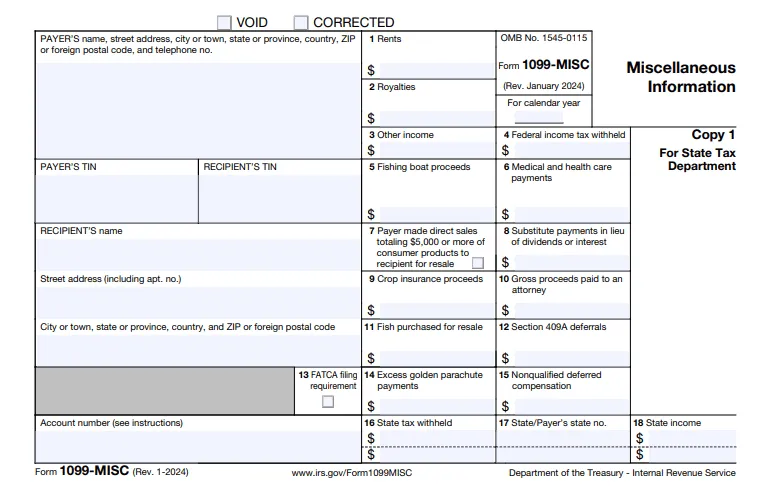
Remember, you must fill out two copies of the 1099 form for each contractor you worked with: The first page (Copy A) has to be submitted to the IRS, while the other (Copy B) should be sent to the independent contractor on time.
4. Send the 1099 Form to Your Vendors/Freelancers
Copy B of the 1099 forms should be sent to all your independent contractors, freelancers, and vendors on or before January 31st or by the following business day. This allows your independent contractors to include it in their personal tax returns and accurately report their yearly income. If you miss this deadline, the IRS can penalize you with fines.
5. Submit Your 1099 Forms
There are two ways of reporting Copy A of Form 1099:
- Snail mail: Mailing your IRS form is the traditional way of paper tax filing. You must send out your 1099s no later than January 31 of the year. You also need to attach form 1096, which tracks your 1099-NEC and MISC submissions.
- Online: You can now submit 1099-NEC and MISC forms via the IRS’s electronic submission service, the Filing a Return Electronically (FIRE) system. To use the FIRE service, you need to do the following:
- Request a Transmitter Control Code (TCC) from the IRS via form 4419. You must fill this out and submit it at least 30 days before the 1099 deadline.
- Create a FIRE system account.
- Complete your 1099s via supported payroll software.
- Submit the document (in the proper format) via the FIRE system.
For the 2024 tax year (filing in 2025), if you have to submit over 10 information items in a single year, you must e-file your taxes. These information returns can be required at both federal and state levels, so always double-check if you need to undergo state filing as well—ask your accountant, a local firm, or another third-party service if you have questions or need additional tax support.
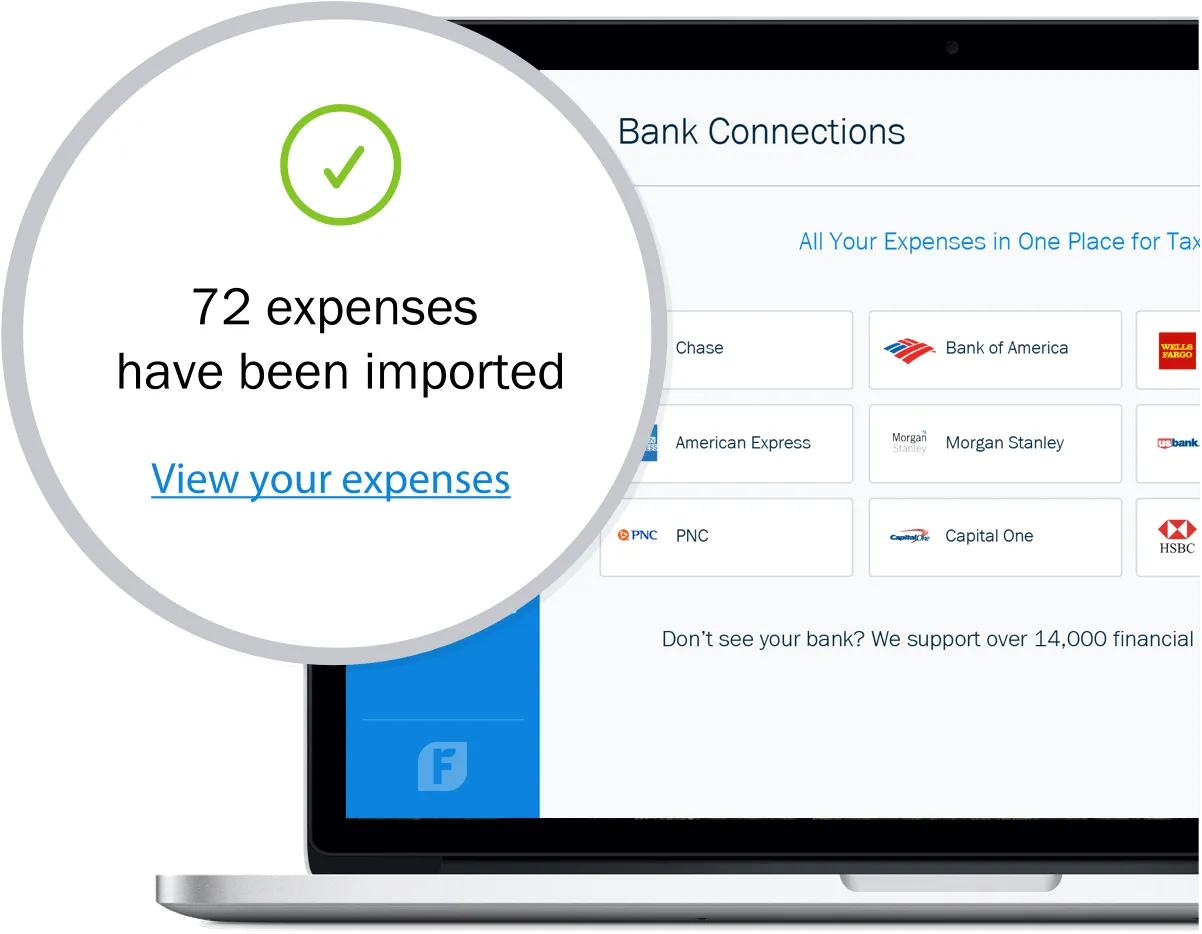
Benefits of Filing 1099 Electronically
Filing electronically can improve the convenience, cost, and security of your tax process. While there’s nothing wrong with submitting 1099-NEC and MISC forms through the mail, there’s always a risk of your mail getting lost or stolen on its way to the IRS. When you submit Form 1099 electronically, you have a much greater level of security, which is especially important when sending financial information.
Digital tax filing also allows you to track your form and grants you access to instant filing status from the IRS. Tax prep software also often includes error checking and offers an easy way to keep tax records together for busy small business owners. Finally, online submission offers an affordable alternative to sending your 1099-NEC and MISC forms to the IRS through the mail.

FAQs On How To File 1099
What happens if you don’t file a 1099?
If you don’t file your 1099-NEC or 1099-MISC form, you could be penalized by the IRS. You may face a late penalty for failing to report payments, or if the failure to submit taxes represents a significant income understatement on your taxes, there may be a higher fine.
What can you write off as a 1099?
If you’re submitting a Form 1099-NEC or MISC to the IRS, you may be able to write off certain business expenses like your home office, vehicle expenses, and supplies for your business. Remember to write off only the parts of these that are used for business, not those that are for personal use.
Is it better to be 1099 or W-2?
Whether it’s better to be a 1099 contractor or a W-2 employee depends on your preferences—are you looking for flexibility or stability in employment income? 1099 workers typically have the ability to set their own schedules but don’t have access to company benefits, while W-2 employees typically have less autonomy but also fewer tax obligations and access to corporate benefits.
Do 1099 employees always owe taxes?
1099-NEC employees will almost always owe taxes. Unless you make below $400 as a self-employed worker, you’ll have to pay income, Social Security, and Medicare taxes on your income earned on Form 1099.
Does the IRS look at every 1099?
The IRS has a strong computer cross-referencing system, so it’s best to err on the side of caution and assume they’re looking at tax documents on every 1099-NEC or MISC form.
Reviewed by
Michelle Payne has 15 years of experience as a Certified Public Accountant with a strong background in audit, tax, and consulting services. Michelle earned a Bachelor’s of Science and Accounting from Minnesota State University and has provided accounting support across a variety of industries, including retail, manufacturing, higher education, and professional services. She has more than five years of experience working with non-profit organizations in a finance capacity. Keep up with Michelle’s CPA career — and ultramarathoning endeavors — on LinkedIn.
RELATED ARTICLES


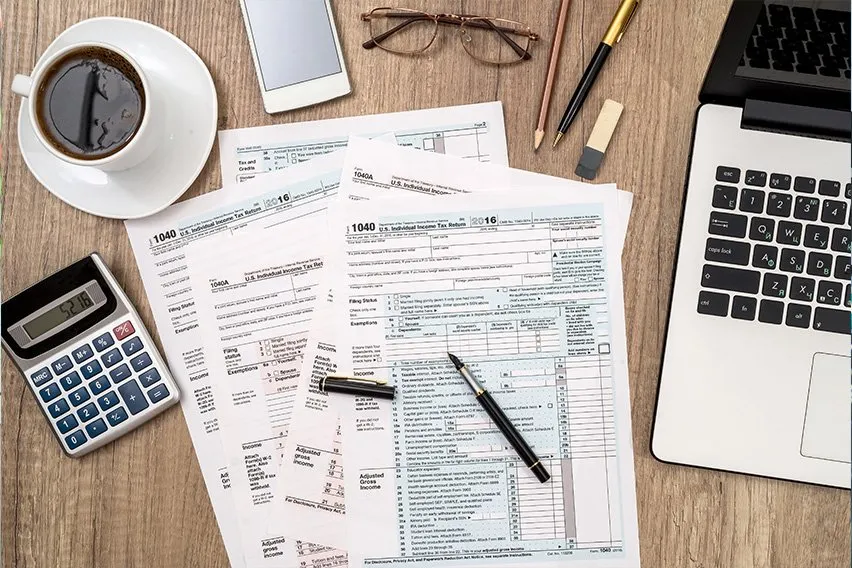 Tax Deductions for Self-Employed Business Owners: Everything to Know
Tax Deductions for Self-Employed Business Owners: Everything to Know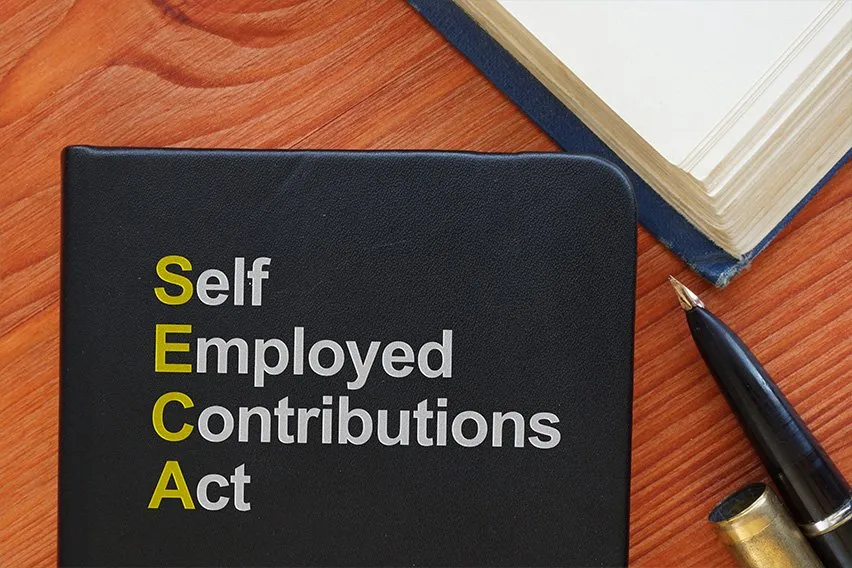 What Is SECA Tax? A Simple Guide to Self-Employed Tax Obligations
What Is SECA Tax? A Simple Guide to Self-Employed Tax Obligations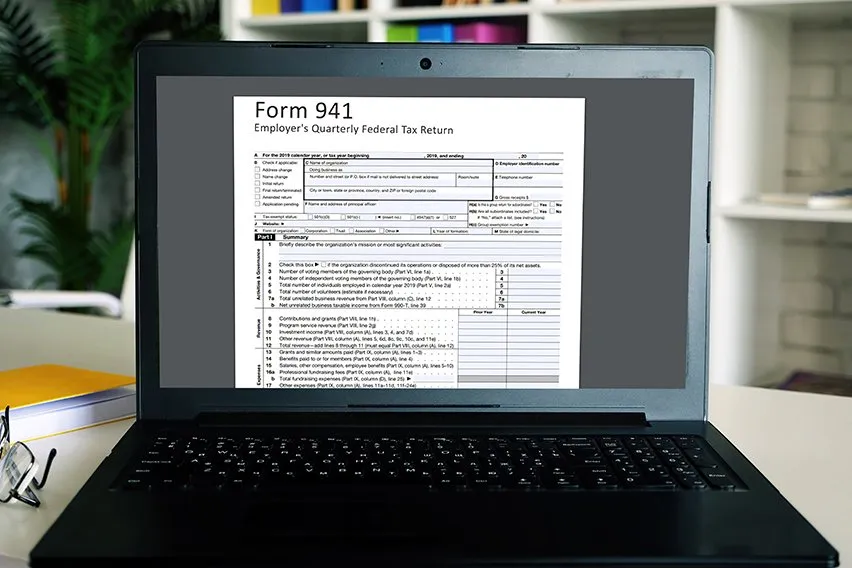 What Is Form 941? Facts and Filing Tips for Small Businesses
What Is Form 941? Facts and Filing Tips for Small Businesses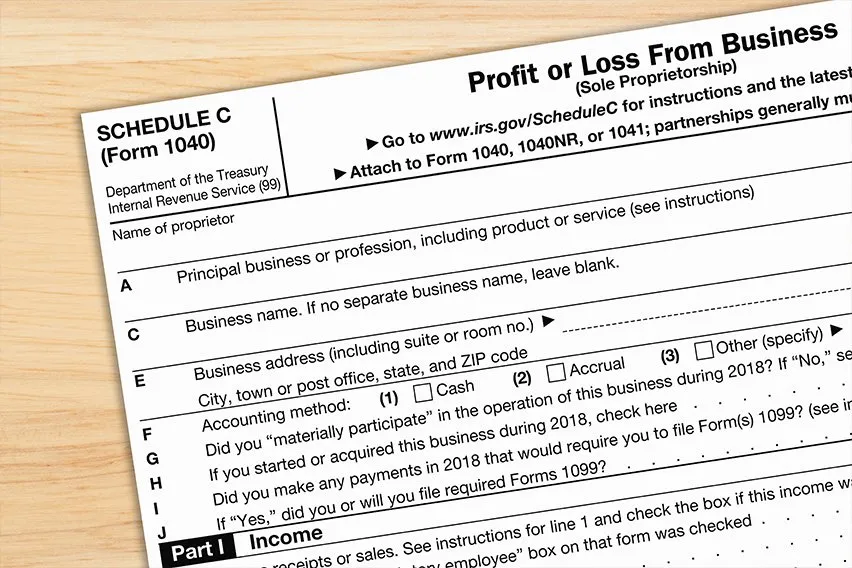 Schedule C: Tax Form for Self-Employed Individuals
Schedule C: Tax Form for Self-Employed Individuals How To Calculate Payroll Taxes: Step-By-Step Guide
How To Calculate Payroll Taxes: Step-By-Step Guide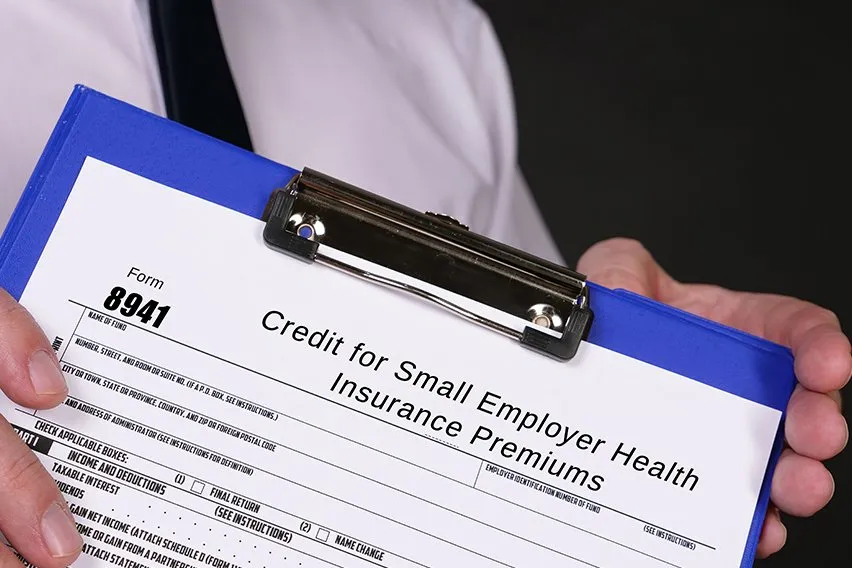 What Is Form 8941? It’s a Tax Credit for Small Business Health Insurance Costs
What Is Form 8941? It’s a Tax Credit for Small Business Health Insurance Costs